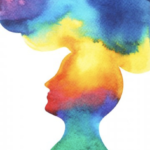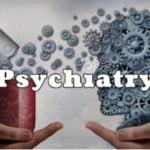Let’s begin by asking what makes THIS time of stress so difficult and toxic? After all, we have been through many disasters before - 9/11, countless wars, natural disasters, etc. - without nearly this degree of emotional and psychological impact.
The answer lies, in part, with our brains’ response to acute or chronic stress. Stress in small amounts is helpful. It triggers cortisol and adrenaline which helps us be able to spring into action both physically and emotionally. Prolonged stress is a completely different animal. My patients know from our conversations, and biochemists and neuroscientists who study this will confirm: prolonged stress activates our sympathetic nervous system without a shut off switch. Our brains constantly produce adrenaline and noradrenaline, the stress neurotransmitters. Our adrenal glands are triggered through our pituitary gland to constantly produce cortisol. This constant flow of cortisol and adrenaline on a prolonged level affect the hippocampus in our brain, which then starts to drive a feeling of burnout and depression.
As humans, we are wired both physically and chemically to move into action. Our hyper-vigilance leads to the “Fight or Flight” response, which is all about action. When we are stressed, we feel the urge to physically act, and our bodies' physiology changes to potentiate our ability to fully activate.
There are two factors that distinguish this period from all others. First, the presence of the coronavirus forces us to protect ourselves not by acting, which is our natural reaction, but instead by exercising restraint – staying home, isolating and disengaging. Its contrary to our evolution and our physiology. This has serious implications on a neuroscience basis, as this self-restraint actually amplifies our stress levels, and starts an ever-expanding stress loop.
Second, in previous crises, we have had the comforting ability to look with confidence, even pride, on our leaders and our communities. Today we are looking at a very different world where our foundations of security have been shaken. We are watching the exposure of systemic racism and abuse in our country. We see environmental regulations being stripped on a weekly basis, sending our planet deeper into harm’s way. Our food supply is being threatened. Our healthcare is often insufficient, and what is available is out of reach to many citizens in greatest need. We’re face to face with the stark reality of how many of our neighbors lack the ability to simply live a healthy life with healthy food and living conditions. The chasm between super-rich and working poor is growing more divisive. And even worse, our very democracy is at risk at the hands of a president who has shown massive incompetence and a gross inability to tell the truth in a time of crisis.
So, what does this duo of isolation and shaken confidence do to us? There are well-known studies, the first one published in 1990, showing that our ability to weather these stress storms is influenced by our connections to others and our ability to manage isolation without loneliness. Just this week, the British Medical Journal published a paper on children at severe risk, because of their loss of contact with fellow students. Loss of connection leads to severe mental health disorders and has been shown to significantly reduce our immunity in two ways: our immunity to pathogens in our environment and our immunity to surviving psychologically intact.
So, the very thing designed to save us - social distancing - has given rise to isolation and loss of connection. This results in a mental health crisis and a physical vulnerability to infection.
It may surprise you to learn that another major influence in our survival is optimism. So, when we feel the world is falling apart, our country is broken and our leaders are morally bankrupt, we lose that critical element of belief in a better day. This has been studied by numerous great researchers, who have shown that from birth until death, it is critical that we feel safe and secure in our world. Critical that we have a feeling “it’s all going to be OK.” I can honestly say that for the first time in my life, I’m seeing many people who no longer feel that their future is certain, or that everything is going to be OK.
Although I believe strongly in the spirit, strength, resilience, and goodness of humanity, it is critical to find ways to manage these stressors in order that we can access all of these great qualities. It is essential to our survival, and further, to flourish individually and as a species.
My expertise is focused on the brain and body, and how the two work in concert to support health or disease. So, I am certainly not espousing environmental, economic or sociologic solutions to the conditions that are prevailing in our country today. But I will continue to help make sense of what is happening in the world around us, and offer my evidence based, researched, real time tools for us all to use in the moment and on a daily basis. While it may sound poetic, it is backed by sound science: staying optimistic and connected to others will help you survive and thrive through this pandemic. I’d like to tell you the worst is over, but truly scientists are telling us that the next wave is coming, and it will be even more virulent. The good news is that together, we can strengthen ourselves to emerge as victors and not victims of these times.








